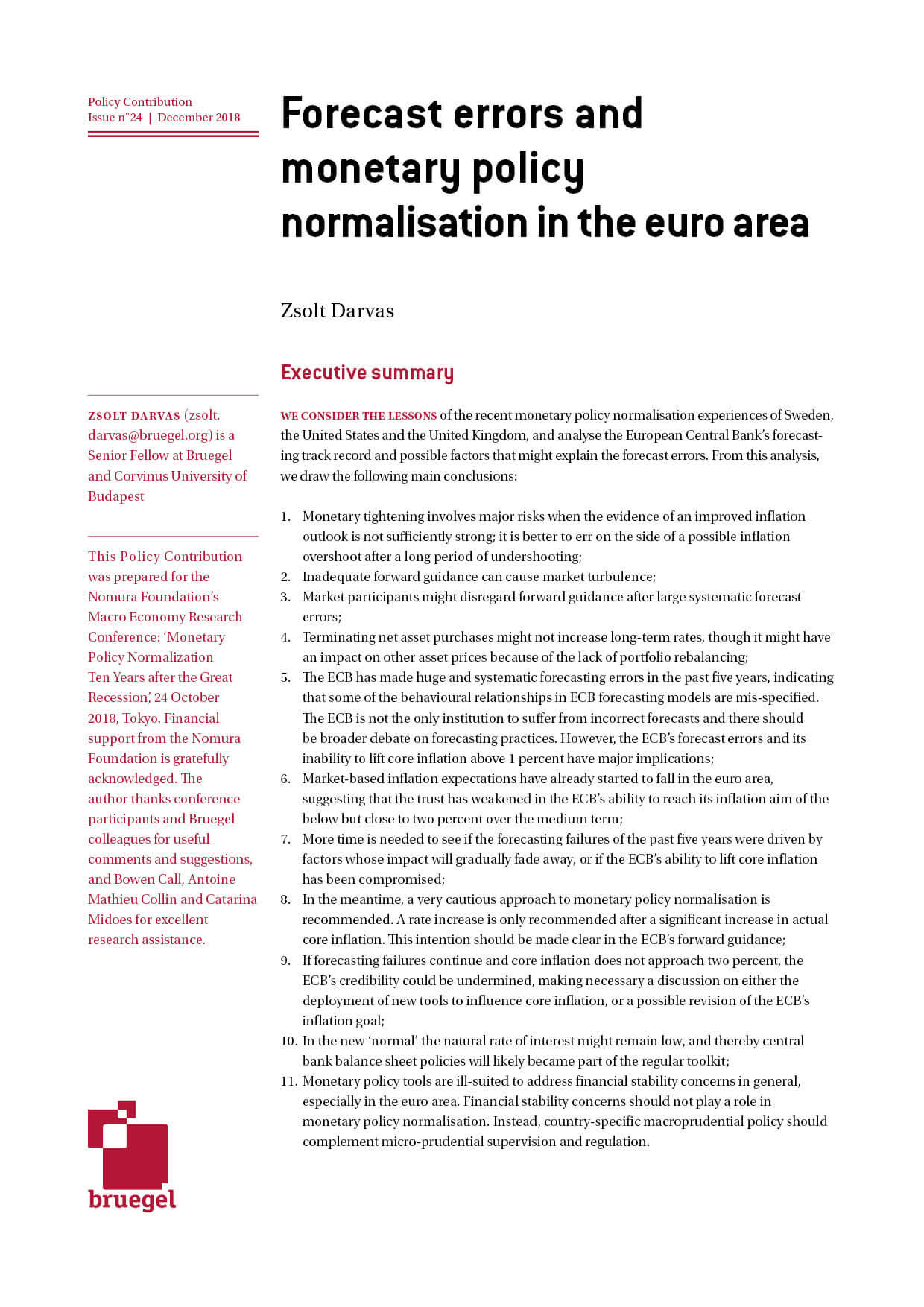Policy Contribution
Forecast errors and monetary policy normalisation in the euro area
What did we learn from the recent monetary policy normalisation experiences of Sweden, the United States and the United Kingdom? Zsolt Darvas consider the lessons and analyse the European Central Bank’s forecasting track record and possible factors that might explain the forecast errors.
This Policy Contribution was prepared for the Nomura Foundation’s Macro Economy Research Conference: ‘Monetary Policy Normalization Ten Years after the Great Recession’, 24 October 2018, Tokyo. Financial support from the Nomura Foundation is gratefully acknowledged.
We consider the lessons of the recent monetary policy normalisation experiences of Sweden, the United States and the United Kingdom, and analyse the European Central Bank’s forecasting track record and possible factors that might explain the forecast errors. From this analysis, we draw the following main conclusions:
- Monetary tightening involves major risks when the evidence of an improved inflation outlook is not sufficiently strong; it is better to err on the side of a possible inflation overshoot after a long period of undershooting;
- Inadequate forward guidance can cause market turbulence;
- Market participants might disregard forward guidance after large systematic forecast errors;
- Terminating net asset purchases might not increase long-term rates, though it might have an impact on other asset prices because of the lack of portfolio rebalancing;
- The ECB has made huge and systematic forecasting errors in the past five years, indicating that some of the behavioural relationships in ECB forecasting models are mis-specified. The ECB is not the only institution to suffer from incorrect forecasts and there should be broader debate on forecasting practices. However, the ECB’s forecast errors and its inability to lift core inflation above 1 percent have major implications;
- Market-based inflation expectations have already started to fall in the euro area, suggesting that the trust has weakened in the ECB’s ability to reach its inflation aim of the below but close to two percent over the medium term;
- More time is needed to see if the forecasting failures of the past five years were driven by factors whose impact will gradually fade away, or if the ECB’s ability to lift core inflation has been compromised;
- In the meantime, a very cautious approach to monetary policy normalisation is recommended. A rate increase is only recommended after a significant increase in actual core inflation. This intention should be made clear in the ECB’s forward guidance;
- If forecasting failures continue and core inflation does not approach two percent, the ECB’s credibility could be undermined, making necessary a discussion on either the deployment of new tools to influence core inflation, or a possible revision of the ECB’s inflation goal;
- In the new ‘normal’ the natural rate of interest might remain low, and thereby central bank balance sheet policies will likely became part of the regular toolkit;
- Monetary policy tools are ill-suited to address financial stability concerns in general, especially in the euro area. Financial stability concerns should not play a role in monetary policy normalisation. Instead, country-specific macroprudential policy should complement micro-prudential supervision and regulation.









